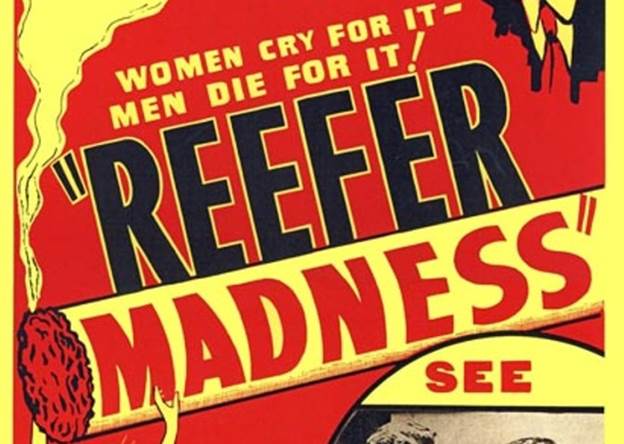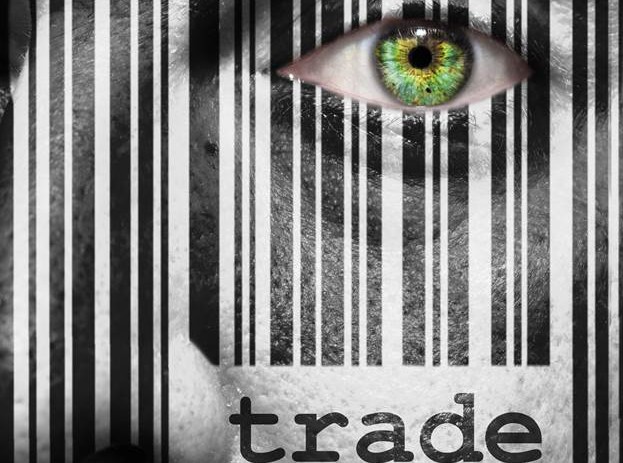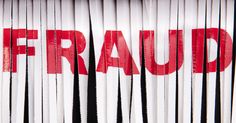Attorney Jilbert Tahmazian Charged with Fraud in a Prime Bank Scheme
 On February 11, 2016 the Securities and Exchange Commission (SEC) charged Jilbert Tahmazian, a lawyer licensed in the state of California, with fraud for engaging in a prime bank scheme.
On February 11, 2016 the Securities and Exchange Commission (SEC) charged Jilbert Tahmazian, a lawyer licensed in the state of California, with fraud for engaging in a prime bank scheme.
Prime bank schemes involve the offer and sale of fictitious investment programs claiming that investors’ funds will be used to purchase and trade “prime bank” financial instruments on clandestine overseas markets to generate huge returns in which the investor will share. However, neither these instruments, nor the markets on which they allegedly trade, exist.
The SEC alleges that Tahmazian and his co-schemer offered and sold bogus investment contracts purporting to provide investors access to “a Financial Instrument issued by a top rated financial institution/top 50 bank with a minimum face value of $100 million” and “designated toward a 40-week private placement program.” Read More
Frank Lleras Charged with Conducting a Fraudulent Investment Scheme
 On February 10, 2016, the Securities and Exchange Commission (SEC) charged Frank Lleras and two Charlotte, North Carolina-based companies that he controls, Optimum Income Property, LLC and Optimum Property Investments, LLC, with conducting an offering fraud lasting more than two years that raised more than $2.9 million from at least 25 investors from the Dominican Republic.
On February 10, 2016, the Securities and Exchange Commission (SEC) charged Frank Lleras and two Charlotte, North Carolina-based companies that he controls, Optimum Income Property, LLC and Optimum Property Investments, LLC, with conducting an offering fraud lasting more than two years that raised more than $2.9 million from at least 25 investors from the Dominican Republic.
In a parallel action, the U.S. Attorney’s Office for the Western District of North Carolina announced that Lleras has pled guilty to securities and wire fraud. Read More
Court Enters Final Judgment Against Moazzam “Mark” Malik and Wolf Hedge LLC
 The Securities and Exchange Commission (SEC) announced that on February 9, 2016, the Court for the Southern District of New York entered a final judgment against Defendants Moazzam “Mark” Malik, a Pakistani citizen and New York City resident, and his purported hedge fund, American Bridge Investment Group, LLC, d/b/a Wolf Hedge LLC (“ABIG”). The final judgment enjoins defendants from violating Sections 5(a), 5(c) and 17(a) of the Securities Act of 1933, and Section 10(b) of the Securities Exchange Act of 1934 and Rule 10b-5, enjoins Malik from violating Sections 206(1), 206(2) and 206(4) of the Investment Advisers Act of 1940 and Rule 206(4)-8, and enjoins defendants from soliciting additional investors or accepting additional investments from existing investors. The final judgment further orders defendants to pay disgorgement, on a joint and several basis, of $1,005,244.70 plus prejudgment interest of $93,099.94, and imposes civil money penalties of $2,850,000 against Malik and $13,775,000 against ABIG. Read More
The Securities and Exchange Commission (SEC) announced that on February 9, 2016, the Court for the Southern District of New York entered a final judgment against Defendants Moazzam “Mark” Malik, a Pakistani citizen and New York City resident, and his purported hedge fund, American Bridge Investment Group, LLC, d/b/a Wolf Hedge LLC (“ABIG”). The final judgment enjoins defendants from violating Sections 5(a), 5(c) and 17(a) of the Securities Act of 1933, and Section 10(b) of the Securities Exchange Act of 1934 and Rule 10b-5, enjoins Malik from violating Sections 206(1), 206(2) and 206(4) of the Investment Advisers Act of 1940 and Rule 206(4)-8, and enjoins defendants from soliciting additional investors or accepting additional investments from existing investors. The final judgment further orders defendants to pay disgorgement, on a joint and several basis, of $1,005,244.70 plus prejudgment interest of $93,099.94, and imposes civil money penalties of $2,850,000 against Malik and $13,775,000 against ABIG. Read More
Penny Stock Issuers and Their Principals Charged with Fraud
 The Securities and Exchange Commission (SEC) charged two penny stock issuers and their principals with fraud for disseminating false and misleading press releases and other related documents about purported involvement in the marijuana industry.
The Securities and Exchange Commission (SEC) charged two penny stock issuers and their principals with fraud for disseminating false and misleading press releases and other related documents about purported involvement in the marijuana industry.
The SEC’s complaint against Fortitude Group, Inc. and its CEO, Thomas Parilla, filed in federal court in Pennsylvania on February 29, 2016, alleges that:
- Between February and March 2014, Fortitude and Parilla made materially false and misleading statements in various publicly-disseminated press releases and a financial report concerning Fortitude’s purported efforts to enter into the rapidly growing legal marijuana business industry.
- The press releases falsely described Fortitude as having successful marijuana-related partnerships and operations, including claims about its issuance of a Discover-branded debit card and distribution of vaporizers to marijuana dispensaries.
- Fortitude and Parilla falsely represented in a company financial report that Fortitude was earning revenue from the purported marijuana business.
Court Enters Final Judgment Against Martin Weisberg
 The Securities and Exchange Commission (SEC) announced that on January 20, 2016, the Court for the Eastern District of New York entered a final judgment against defendant Martin Weisberg. The final judgment imposes on Weisberg a permanent injunction against future violations of certain antifraud provisions of the federal securities laws and bars Weisberg from serving as an officer and director of a public company.
The Securities and Exchange Commission (SEC) announced that on January 20, 2016, the Court for the Eastern District of New York entered a final judgment against defendant Martin Weisberg. The final judgment imposes on Weisberg a permanent injunction against future violations of certain antifraud provisions of the federal securities laws and bars Weisberg from serving as an officer and director of a public company.
The SEC’s complaint, filed on October 19, 2007 and amended on March 23, 2015, charged Weisberg with making fraudulent misrepresentations about an Israeli investor group in corporate filings and other documents of two public companies – Xybernaut Corporation and Ramp Corporation. Weisberg, the securities counsel to Xybernaut and Ramp, prepared the filings and also served as a director of Xybernaut. Read More
Insider Trading Defendant Herbert Sudfeld Found Guilty in a Related Case
 The Securities and Exchange Commission (SEC) announced that on February 5, 2016, a jury in federal court in Philadelphia returned a guilty verdict against Pennsylvania attorney Herbert Sudfeld (“Sudfeld”) in a criminal trial prosecuted by the U.S. Attorney for the Eastern District of Pennsylvania. The jury convicted Sudfeld of insider trading along with three counts of making a false statement. U.S. District Court Judge Cynthia Rufe has not yet set a date for sentencing.
The Securities and Exchange Commission (SEC) announced that on February 5, 2016, a jury in federal court in Philadelphia returned a guilty verdict against Pennsylvania attorney Herbert Sudfeld (“Sudfeld”) in a criminal trial prosecuted by the U.S. Attorney for the Eastern District of Pennsylvania. The jury convicted Sudfeld of insider trading along with three counts of making a false statement. U.S. District Court Judge Cynthia Rufe has not yet set a date for sentencing.
The SEC previously charged Sudfeld with insider trading in a civil action filed July 16, 2015. The criminal case is based on the same conduct underlying the SEC’s action. The SEC’s complaint alleged that Sudfeld illegally traded in advance of the 2011 announcement of a $760 million merger of Harleysville Group, Inc. and Nationwide Mutual Insurance Company, which sent the price of Harleysville stock up 87%. Read More
SEC Enters Settlement Agreement with Concorde Bermuda Ltd.
 The Securities and Exchange Commission (SEC) announced that it entered into a settlement agreement, subject to court approval, with Ukrainian-based Concorde Bermuda Ltd. (Concorde) in a case alleging a scheme to trade on hacked news releases. On August 10, 2015, the SEC filed a civil action in the U.S District Court for the District of New Jersey, and the court entered an asset freeze and other emergency relief against Concorde, among others. On August 23, 2015, the SEC amended its complaint to add two defendants, bringing the total to 34.
The Securities and Exchange Commission (SEC) announced that it entered into a settlement agreement, subject to court approval, with Ukrainian-based Concorde Bermuda Ltd. (Concorde) in a case alleging a scheme to trade on hacked news releases. On August 10, 2015, the SEC filed a civil action in the U.S District Court for the District of New Jersey, and the court entered an asset freeze and other emergency relief against Concorde, among others. On August 23, 2015, the SEC amended its complaint to add two defendants, bringing the total to 34.
Concorde is alleged to have made approximately $3.6 million buying and selling stock on the basis of hacked press releases stolen from two newswire services between 2010 and 2014, and to have made additional profits trading on press releases stolen from a third newswire service in 2015. Read More
Court Enters Final Judgment Against Shirmila Doddi For Insider Trading
 The Securities and Exchange Commission (SEC) announced that on January 20, 2016, the Court for the District of Massachusetts entered a final judgment against defendant Shirmila Doddi, permanently enjoining her from future violations of Section 10(b) and Rule 10b-5. The final judgment also orders further proceedings for the purposes of determining the appropriate amount of disgorgement, prejudgment interest thereon, and civil penalties. Doddi consented to the final judgment.
The Securities and Exchange Commission (SEC) announced that on January 20, 2016, the Court for the District of Massachusetts entered a final judgment against defendant Shirmila Doddi, permanently enjoining her from future violations of Section 10(b) and Rule 10b-5. The final judgment also orders further proceedings for the purposes of determining the appropriate amount of disgorgement, prejudgment interest thereon, and civil penalties. Doddi consented to the final judgment.
In its insider trading complaint, the SEC alleged that, in 2011, Vlad Spivak, then a resident of Medford, Massachusetts, traded in the securities of American Dental Partners, Inc. (“ADPI”) on the basis of material nonpublic information that he received from his romantic partner, Shirmila Doddi. Read More
Court Enters Final Judgment Against CEO of Polycom
 The Securities and Exchange Commission announced that on January 26, 2016, the Honorable Yvonne Gonzalez Rogers of the United States District Court for the Northern District of California entered a final judgment against Andrew Miller, the former CEO of Silicon Valley-based technology firm, Polycom Inc.
The Securities and Exchange Commission announced that on January 26, 2016, the Honorable Yvonne Gonzalez Rogers of the United States District Court for the Northern District of California entered a final judgment against Andrew Miller, the former CEO of Silicon Valley-based technology firm, Polycom Inc.
Without admitting or denying the allegations in the complaint, Miller consented to the entry of the final judgment that: Read More
Court Issues Asset Freeze Over Sedona Oil and Its President
 On January 21, 2016, the Securities and Exchange Commission (SEC) filed an emergency civil action against a Dallas company, Sedona Oil and Gas Corporation and its president, Kenneth “Kenny” Crumbley, Jr., to stop their allegedly fraudulent offer and sale of oil and gas investments. The court entered a temporary restraining order halting the offering, as well as orders appointing a receiver over, and freezing, the defendants’ assets at the request of the SEC.
On January 21, 2016, the Securities and Exchange Commission (SEC) filed an emergency civil action against a Dallas company, Sedona Oil and Gas Corporation and its president, Kenneth “Kenny” Crumbley, Jr., to stop their allegedly fraudulent offer and sale of oil and gas investments. The court entered a temporary restraining order halting the offering, as well as orders appointing a receiver over, and freezing, the defendants’ assets at the request of the SEC.
The SEC’s complaint, which was unsealed by the court on January 26, 2015 alleges that since at least June 2013, defendants have raised approximately $3.3 million from 55 investors through the fraudulent offer and sale of securities in six oil and gas investment programs. According to the complaint, defendants’ offering materials represented that 100% of investor funds would be used to cover expenses associated with drilling, testing, and completing wells located in Texas, Tennessee, Kentucky. But the SEC alleges that defendants only spent a portion of investor funds for these purposes, and instead spent more than 60% of these funds on undisclosed and unapproved expenditures such as the daily operating expenses of Sedona Oil, defending a lawsuit by an earlier investor, repayment of loans from another Crumbley-controlled company, personal expenses of Crumbley and his family, and Ponzi payments to investors in earlier offerings. Read More
SEC Charges Marquis Properties and Its Principals With Operating a Ponzi Scheme
 The Securities and Exchange Commission (SEC) obtained an asset freeze and other ancillary relief against Marquis Properties, LLC, and its CEO/President Chad Deucher for orchestrating a $28 million Ponzi scheme that defrauded more than 250 investors throughout the United States. The complaint also names Marquis’ Executive Vice President, Richard (“Rick”) Clatfelter as a defendant. Read More
The Securities and Exchange Commission (SEC) obtained an asset freeze and other ancillary relief against Marquis Properties, LLC, and its CEO/President Chad Deucher for orchestrating a $28 million Ponzi scheme that defrauded more than 250 investors throughout the United States. The complaint also names Marquis’ Executive Vice President, Richard (“Rick”) Clatfelter as a defendant. Read More
SEC Charges StratoComm Coporation with Illicit Sale of Securities
 On October 4, 2011, the Securities and Exchange Commission (SEC) filed a complaint in United States District Court for the Northern District of New York charging StratoComm Corporation, its CEO Roger Shearer, and its former Director of Investor Relations, Craig Danzig, with violating the antifraud provisions of the securities laws and with illegally selling securities in unregistered transactions. On October 3, 2011, the SEC filed a complaint in United States District Court for the Southern District of Florida alleging that attorney Stewart Merkin, StratoComm’s outside counsel, also committed securities fraud.
On October 4, 2011, the Securities and Exchange Commission (SEC) filed a complaint in United States District Court for the Northern District of New York charging StratoComm Corporation, its CEO Roger Shearer, and its former Director of Investor Relations, Craig Danzig, with violating the antifraud provisions of the securities laws and with illegally selling securities in unregistered transactions. On October 3, 2011, the SEC filed a complaint in United States District Court for the Southern District of Florida alleging that attorney Stewart Merkin, StratoComm’s outside counsel, also committed securities fraud.
The SEC’s complaint filed in Albany, New York alleges that StratoComm, acting at Shearer’s direction and with Danzig’s assistance, issued and distributed public statements falsely portraying the company as actively engaged in the manufacture and sale of telecommunications systems for use in underdeveloped countries, particularly Africa. In reality, the company had no product and no revenue. The SEC’s complaint also alleges that StratoComm, Shearer and Danzig sold investors approximately $3 million worth of StratoComm stock in unregistered transactions. Shearer used much of that money for his own purposes, including paying a substantial part of the restitution he owed in connection with his guilty plea in a prior criminal proceeding. Read More
COR Clearing Subpoenas Retail Shareholder Trade Information
Last fall, we wrote about a highly unusual cash dividend paid by penny stock Calissio Resources Group, Inc. (CRGP). The payment process was so badly botched it resulted in a Financial Industry Regulatory Authority (FINRA) U3 trading halt that sent the stock to the Grey Market, and prompted a lawsuit by COR Clearing, LLC, which claimed it had been cheated out of $4 million. Much has happened since that time, and the drama continues. While some important points have been clarified, others have not, and no resolution is in sight. This debacle comes as no surprise in light of the fact that CRGO was a former dormant ticker that slithered into the public markets without oversight.
To recap: On June 16, 2015, Calissio, a purported mining company with properties in Mexico, declared two dividends. One was to be a small stock dividend; the other a large cash dividend that would pay $0.011 a share, or a total of about $1.3 million. The record and pay dates for both were the same, June 30 and August 17 respectively. As we explained in our earlier piece, although the company described the cash dividend as a regular quarterly distribution, at all times between the declaration date and the ex dividend date it qualified as a special dividend: one worth more than 25 percent of the value of CRGP’s stock.
Pyramid Schemer Sanderly Rodrigues Incarcerated for Violation of Court Order
 The Securities and Exchange Commission (SEC) announced that Sanderley Rodrigues de Vasconcelos (“Rodrigues”) of Davenport, Florida, who is charged with promoting a pyramid scheme, was ordered to jail for civil contempt arising from his repeated violations of Court orders obtained by the SEC in its civil action filed in 2014 against Rodrigues.
The Securities and Exchange Commission (SEC) announced that Sanderley Rodrigues de Vasconcelos (“Rodrigues”) of Davenport, Florida, who is charged with promoting a pyramid scheme, was ordered to jail for civil contempt arising from his repeated violations of Court orders obtained by the SEC in its civil action filed in 2014 against Rodrigues.
On April 15, 2014, the SEC filed an emergency civil action against TelexFree, Inc., Rodrigues and several other defendants and obtained from the U.S. District Court in Boston certain preliminary relief, including an order for an asset freeze for Rodrigues. On June 10, 2015, Rodrigues consented to a Court order requiring him to provide an accounting listing all assets and transactions over $500. On August 12, 2015, the SEC asked the Court to hold Rodrigues in contempt, alleging that Rodrigues had transferred or disposed of assets and had failed to provide the Court-ordered accounting. Read More
SEC Seeks Enforcement Against CEO of DecisionPoint
 The Securities and Exchange Commission (SEC) filed a complaint in the United States District Court for the Southern District of Florida against Nicholas Toms seeking enforcement of the SEC Order requiring him to pay disgorgement of $85,918, representing profits gained by Toms’ conduct described in the SEC Order, prejudgment interest to the date of the SEC Order of $16,853.40, and a civil money penalty of $175,000.
The Securities and Exchange Commission (SEC) filed a complaint in the United States District Court for the Southern District of Florida against Nicholas Toms seeking enforcement of the SEC Order requiring him to pay disgorgement of $85,918, representing profits gained by Toms’ conduct described in the SEC Order, prejudgment interest to the date of the SEC Order of $16,853.40, and a civil money penalty of $175,000.
On February 11, 2015 Toms, a resident of Boca Raton, Florida and an attorney licensed to practice law in the State of New York and formerly the CEO and president of DecisionPoint Systems, Inc., from 1981 through 1989 beneficially owned and sold more than 2.3 million shares of the firm’s stock. He did this by using his secretary as a nominee for the shares and then making materially false filings with the SEC and certifying to the accuracy of those filings. The Order alleged violations of Exchange Act Section 10(b). Read More
Court Denies Defendants’ Motion to Dismiss SEC Insider Trading Enforcement
 The Securities and Exchange Commission (SEC) announced that the U.S. District Court for the District of Rhode Island denied defendants Anthony Andrade’s and Kenneth Rampino’s motion to dismiss an SEC insider trading action. The SEC’s complaint, filed June 8, 2015, alleges that Andrade, a former bank director at Bancorp Rhode Island, Inc. engaged in insider trading when he illegally tipped three friends and business associates about the bank’s potential acquisition by another bank. The complaint also alleges that Rampino engaged in insider trading by purchasing stock based on Andrade’s illegal tip.
The Securities and Exchange Commission (SEC) announced that the U.S. District Court for the District of Rhode Island denied defendants Anthony Andrade’s and Kenneth Rampino’s motion to dismiss an SEC insider trading action. The SEC’s complaint, filed June 8, 2015, alleges that Andrade, a former bank director at Bancorp Rhode Island, Inc. engaged in insider trading when he illegally tipped three friends and business associates about the bank’s potential acquisition by another bank. The complaint also alleges that Rampino engaged in insider trading by purchasing stock based on Andrade’s illegal tip.
Defendants Andrade and Rampino challenged the sufficiency of the complaint by claiming that the SEC had not alleged the elements of an insider trading action and in particular, had not alleged that Andrade personally benefitted from providing the tip or that Rampino knew about that benefit. In denying the motion, the Court noted, “[i]t is hard to imagine a case with better alleged circumstantial evidence of insider trading,” including allegations that the traders purchased Bancorp RI stock soon after talking with Andrade, and that none of the traders had any legitimate business justification to know about the proposed bank merger. The Court also concluded that the complaint described the type of meaningful and close personal relationship between Andrade and Rampino in which the benefit to Andrade from tipping his friend could be inferred. The Court also found that the complaint sufficiently pled that Rampino knew about the benefit Andrade received, especially in light of the history of personal favors described in the complaint. Read More
SEC Charges Robert Crowe for Joining a Pay-to-Play Scheme
 The Securities and Exchange Commission (SEC) filed a complaint against Robert Crowe, a law firm partner who worked as a fundraiser and lobbyist for State Street Bank and Trust Company. The complaint alleges that Crowe participated in a pay-to-play scheme to win contracts to service Ohio pension funds.
The Securities and Exchange Commission (SEC) filed a complaint against Robert Crowe, a law firm partner who worked as a fundraiser and lobbyist for State Street Bank and Trust Company. The complaint alleges that Crowe participated in a pay-to-play scheme to win contracts to service Ohio pension funds.
The SEC’s complaint alleges that Crowe repeatedly caused concealed campaign contributions to be made on behalf of State Street to the Ohio State Treasurer to influence the Treasurer to select and retain State Street to provide securities custody work. Read More
SEC Wins Insider Trading Case Against Capital One Employee
 The Securities and Exchange Commission (SEC) obtained a jury verdict in its favor in a federal district court trial in Philadelphia against Nan Huang, who the agency charged with insider trading on information he illegally obtained from his employer Capital One Financial Corporation.
The Securities and Exchange Commission (SEC) obtained a jury verdict in its favor in a federal district court trial in Philadelphia against Nan Huang, who the agency charged with insider trading on information he illegally obtained from his employer Capital One Financial Corporation.
In its complaint filed in Pennsylvania on January 21, 2015, the SEC alleged that Huang worked for Capital One, a large credit card issuer, as a data analyst in the fraud department. While employed there, Huang and another individual searched their employer’s nonpublic database that recorded the credit card activity for millions of customers at numerous, predominantly consumer retail corporations. Huang conducted hundreds, if not thousands, of keyword searches of this database. Read More
SEC Obtains Judgment Against Steven Davis
The Securities and Exchange Commission (SEC) announced that on January 8, 2016, the United States District Court for the Southern District of New York entered a judgment against defendant Steven Davis. The judgment resolves all issues of liability against Davis arising from the SEC’s filing of a civil complaint against him on March 6, 2014. A permanent injunction against Davis was entered prohibiting him from future violations of certain SEC antifraud provisions of the federal securities laws and bars Davis from serving as an officer or director of a publicly traded company. Read More
DTC Imposes Corporate Action DTC Eligibility Fee
On December 30, 2015, the Securities and Exchange Commission (“SEC”) published a notice that it was soliciting comments for a proposed rule change submitted by The Depository Trust Company (“DTC”) filed a pursuant to section 19(b)(3)(A) of the Act and Rule 19b-4(f)(2) thereunder. DTC’s proposed rule was effective upon submission to the SEC.
DTC’s proposed rule change consists of a change to DTC’s Fee Schedule (“Fee Schedule”) to add a new DTC eligibility fee that would be charged to the transfer agent of any DTC-eligible issue when the transfer agent notifies DTC of a corporate action event (“Corporate Action”) that requires a new CUSIP to be made DTC-eligible. The types of actions that require a new CUSIP must be submitted to The Financial Industry Regulatory Authority (“FINRA”) pursuant to Rule 6490. Under these circumstances, DTC conducts a review of the issuer’s shares in street name. Issuers must demonstrate the “free trading” nature of their shares in street name by providing DTC with a legal opinion. Corporate Actions requiring a new CUSIP include forward and reverse stock splits, name changes, and certain recapitalizations. These types of transactions require FINRA and DTC to spend significant time and effort in their review.
Martin Shkreli Charged with Securities Fraud
 On December 17, 2015, the Securities and Exchange Commission (SEC) charged Martin Shkreli, former CEO of pharmaceutical company Retrophin, with committing fraud during a 5-year period when he also was working as a hedge fund manager. He is notoriously known for raising the cost of the antiparasitic drug Daraprim and raising its price by 5,556 percent.
On December 17, 2015, the Securities and Exchange Commission (SEC) charged Martin Shkreli, former CEO of pharmaceutical company Retrophin, with committing fraud during a 5-year period when he also was working as a hedge fund manager. He is notoriously known for raising the cost of the antiparasitic drug Daraprim and raising its price by 5,556 percent.
The SEC alleges that Martin Shkreli misappropriated money from two hedge funds he founded and made material misrepresentations to investors among other widespread misconduct. The SEC also charged Retrophin’s former outside counsel and corporate secretary Evan Greebel with aiding and abetting certain aspects of Shkreli’s alleged fraud. Read More
SEC Obtains Asset Freeze of Oxford City Football Club
 On December 10, 2015, the Securities and Exchange Commission (SEC) filed a complaint that charged Oxford City Football Club, Inc. and its CEO, Thomas Anthony Guerriero, with securities fraud and other violations of the federal securities laws. The Court issued a temporary restraining order, asset freeze, and other emergency relief against Oxford City, Guerriero, and relief defendant GCE Wealth, Inc., an entity that Guerriero owned and controlled.
On December 10, 2015, the Securities and Exchange Commission (SEC) filed a complaint that charged Oxford City Football Club, Inc. and its CEO, Thomas Anthony Guerriero, with securities fraud and other violations of the federal securities laws. The Court issued a temporary restraining order, asset freeze, and other emergency relief against Oxford City, Guerriero, and relief defendant GCE Wealth, Inc., an entity that Guerriero owned and controlled.
In the fraud complaint, the SEC claims that Guerriero used deceptive tactics and a boiler room of salespeople to raise over $6.5 million primarily obtained from inexperienced investors who were misled to believe that the company was a thriving conglomerate of sports teams, academic institutions, and real estate holdings. However, the company was actually losing millions of dollars each year and turning zero profit from its two lower-division soccer teams in the U.K. Read More
Court Issues Final Judgment Against Auditor Timothy Quintanilla

The United States Securities and Exchange Commission (SEC) announced that, on December 4, 2015, the Court for the Southern District of New York issued a final judgment, on consent of defendant Timothy Quintanilla, which permanently enjoined him from violating the antifraud provisions of the federal securities laws and ordered him to pay a $100,000 civil penalty. Quintanilla was the former outside auditor of Electronic Game Card Inc. (EGMI). This final judgment fully resolves the enforcement action before Judge Sullivan, in which final judgments were previously entered against three other defendants, former CEO Kevin Donovan, Lee Cole (Donovan’s predecessor as CEO), and Linden Boyne (EGMI’s former CFO), who the SEC charged with violations of the securities laws’ antifraud provisions and other violations. Read More
SEC Charges Vinh Le and His Company with Fraud
The Securities and Exchange Commission (SEC) announced that on December 15, 2015, it filed charges against Vu Le a/k/a Vinh Le and his company, TeamVinh.com LLC (“TeamVinh”), in connection with their fraudulent raising of more than $3 million from over 5,600 investors throughout the United States and in various foreign countries.
According to the SEC’s complaint filed in federal court in Minnesota:
- Vinh Le, who previously had been convicted of forgery and barred from offering or selling securities by state authorities in Minnesota and Wisconsin, and TeamVinh lured people into buying memberships in a program that Le and TeamVinh claimed to be a referral network that investors could use to earn an income from multi-level marketing companies without the investors having to do any work.
- Vinh Le and TeamVinh sold investment contracts in TeamVinh itself, promising investors a percentage of TeamVinh’s profits.
- Vinh Le and TeamVinh sought investments in a purported commodities trading platform run by Le, with Le guaranteeing investors 5% weekly returns.
SEC Charges Edward Durante with Securities Fraud
The Securities and Exchange Commission (SEC) charged Edward Durante, a recidivist securities law violator with operating a multi-year offering fraud that targeted investors in New England, Ohio and California. The SEC’s complaint alleges that between 2012 and 2014, Durante defrauded at least 50 relatively unsophisticated investors of at least $11 million through the sale of securities of VGTel, Inc., a shell company he controlled. Read More
Information About Foreign Issuers and Foreign Companies
 The U.S. capital markets have long been a desired goal for foreign companies that are interested in raising funds or establishing a trading market for their securities.
The U.S. capital markets have long been a desired goal for foreign companies that are interested in raising funds or establishing a trading market for their securities.
Two of the most important laws applicable to companies seeking to go public in the U.S. capital markets are the Securities Act of 1933 (the “Securities Act”) and the Securities Exchange Act of 1934 (the “Exchange Act”). The Securities Act requires foreign companies that want to offer and sell securities in the United States to register the transaction with the Securities and Exchange Commission (SEC) or to follow the requirements of an exemption from the registration requirements. The Exchange Act requires companies to register classes of equity securities in order to list these securities on a US national securities exchange unless certain asset and shareholder thresholds are met. The Exchange Act also requires companies to make periodic filings with the SEC to disclose information about their business operations, financial condition, and management.
In the discussion that follows, this overview outlines several things to be considered by foreign companies that want to raise profits or establish a presence for their securities in the United States, specifically with reference to foreign private issuers. Read More



 The Securities and Exchange Commission (SEC) charged an unregistered broker in Oceanside, California with fraudulently selling purported stock in a medical device company and pocketing investors’ money.
The Securities and Exchange Commission (SEC) charged an unregistered broker in Oceanside, California with fraudulently selling purported stock in a medical device company and pocketing investors’ money.
 On January 13, 2016, the United States Court of Appeals for the Eleventh Circuit affirmed entry of summary judgment in favor of the Securities and Exchange Commission (SEC) on its claims of securities fraud against defendant Stewart Merkin (“Merkin”), an attorney in Miami, Florida.
On January 13, 2016, the United States Court of Appeals for the Eleventh Circuit affirmed entry of summary judgment in favor of the Securities and Exchange Commission (SEC) on its claims of securities fraud against defendant Stewart Merkin (“Merkin”), an attorney in Miami, Florida.








SEC Charges American Growth Funding II with Fraud
American Growth Funding II raises capital from investors to provide loans to businesses. The SEC alleges that American Growth Funding II and Ralph Johnson promised investors 12% annual returns and falsely claimed its financial statements were being audited each year. The SEC’s fraud complaint also claims that American Growth Funding II made misrepresentations in offering documents about its management and concealed details about deteriorating loan values that could imperil full payment of the promised returns to investors. Portfolio Advisors Alliance, Howard Allen, and Kerri Wasserman are alleged to have known the offering documents were inaccurate, yet continued using them to solicit sales of American Growth Funding II securities. Read More